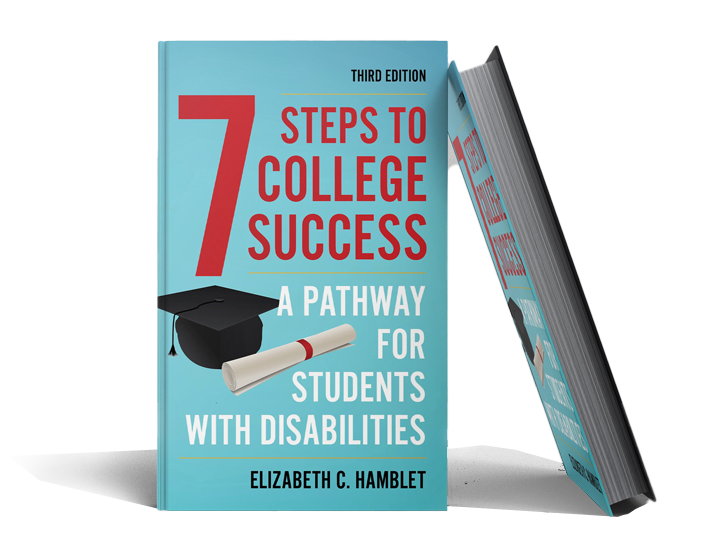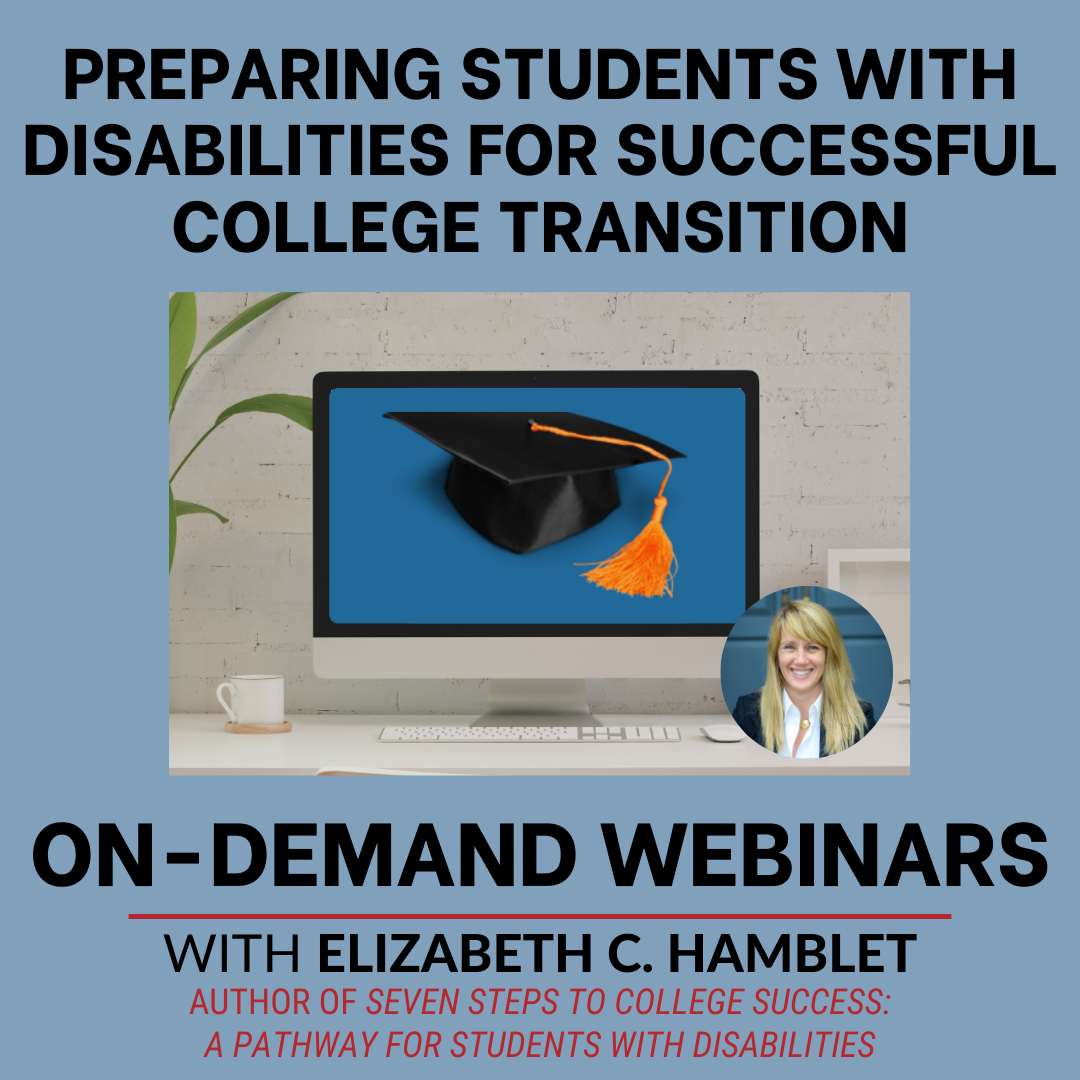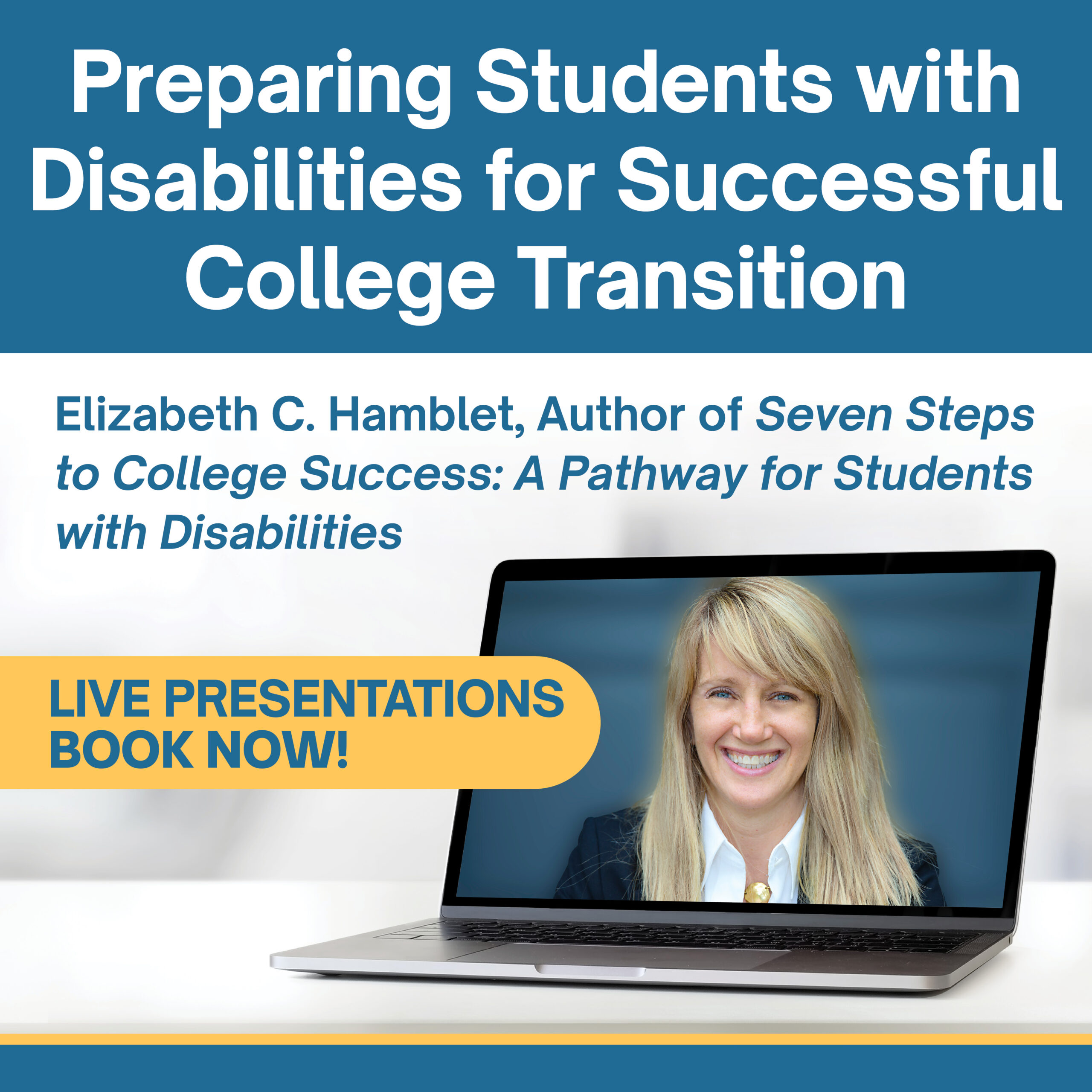Introduction:
Some students may feel unprepared for direct transition to college right after high school but may go anyway because they feel societal pressure to follow the expected timeline. This may be especially true for some students with ADHD, who may be lagging behind their peers in maturity or self-sufficiency.
When I was developing my second book, I interviewed Rae Jacobson, an editor and writer who has written about her own ADHD. Her path to success was not straight. Jacobson failed out of her first college, completed one term at another school, found her footing again at Landmark College (where she learned about her strengths and her LD) then transferred to Lesley College, where she completed her degree. (Jacobson later earned a master’s degree.)
Jacobson offers advice for parents who may be wondering how to help their student.
Reflections on Readiness
Looking back I think it’s obvious that I wasn’t ready to go to college, but I was determined not to be the only one of my friends left behind. I thought just getting in would be the end of my troubles. I was in no way ready, but I didn’t know that. I was so tuned out to what people were saying, I’m not sure I would have listened if anyone had suggested I wait. I had an immature image of what college was like – I thought it was a utopia. When you’re in high school and have trouble learning, you think, “If I can just get into college, everything will be okay.”
Because I had done so little in the way of academic work, even applying to college (in and of itself) seemed monumental. The task initiation was hard –writing the essays, filling out innumerable forms, taking the SAT – and the process of applying and waiting for a response made me terribly anxious.
Why a Student Who Knows They’re Not Ready Might Apply to College
Part of me didn’t want to know whether I was going to get in. It all seemed like just another chance to be rejected. I was constantly panicked that I wasn’t going to get in at all. I didn’t consider disability services or academic supports or anything. I had been tested for ADHD but I didn’t really understand what it meant. All I wanted was to be accepted. The rest, I figured, would come later.
I wasn’t truly interested in college; I really just wanted to go away and leave behind my history of defeats and disappointments. Looking back, I can see how useful it would have been to have someone help me be more reflective about choosing a school. If someone had pointed out that I had been successful in large part because of the supportive environment at my last high school, I might have put more thought into finding a small school with a more individual touch.
[Read about Jacobson’s windy path through college to see whether her high school self sounds like a student you know and might offer you some insights. It does have a happy ending!]
Advice for Parents
Focus more than anything else on readiness.
Parents should listen to their student if they say they’re afraid to go to college and feel they can’t do it. Likewise, if your student wants to go to college just because their friends are going or because they think it’s what they should do, talk to them about alternate options. Pushing students to do things before they’re ready won’t work. Separate your expectations from what is right for your child.
Parents and professionals should assess kids on an individual basis.
Make sure they have the skills and maturity to make the most of higher education when time is right, instead of pushing those who aren’t ready to follow a traditional path from high school to college (when it might not be the right choice for them).
Too often, we apply an arbitrary timeline when it comes to what kids “should” be doing.
It can be hard to remember that milestones – graduating from high school, turning 18, or even getting accepted to college – don’t necessarily translate to college readiness. Students mature at different times.
Support your child in making smart decisions about college readiness.
I think some parents think that if they push their kids “off the cliff” by sending them to college that they’ll start to fly, and they never stop to consider what will happen if it turns out their wings don’t work quite yet.
In college, there’s very little to stop kids who aren’t ready from falling fast and hard. Encouraging them to wait until they’re ready will help to ensure college is a positive experience, instead of another arena of failure where the stakes are even higher.
Remember that college life is about more than just making it to class and getting good grades.
A kid may be okay academically, but if he needs to be reminded to take a shower or has serious social challenges, it’s important to consider how he’ll fare when he’s out on his own. Kids who have no internal scaffolding do not magically develop it merely by attending college. And it’s not just about the academic and life skills. A kid who is paralyzed with anxiety about their ability to do the work is unlikely to suddenly learn to write a long paper on her own.
Remember that if your kid isn’t ready yet, no amount of services and support will change that.
When I was at Landmark, the students who were failing were almost always the ones who’d been forced to go to the school straight out of high school because their parents were afraid they wouldn’t do well at a typical college. Landmark had all the supports you could ask for, but even there, kids who weren’t ready floundered. Supportive schools can be an excellent choice for students who are able to utilize the services they offer, but don’t mistake them for a panacea.
Remember that kids want to make you happy.
And especially for kids who’ve had a less-than-stellar academic career, getting into college can feel like a chance to finally make you proud. Unfortunately, getting into college is not the same getting through and out successfully. Help kids understand that getting an acceptance letter isn’t the only thing kids can do to please them.
Provide kids alternative post-secondary options that are presented as having the same value.
It’s important to avoid passive language that can communicate that any choice other than college will be a disappointment to you. For example, don’t say, “Well, we think college is right for you, but if you think you’re not ready, I guess you could do X for awhile.” Instead, say, “College is awesome if that’s what you want, but it’s definitely not the only great option. What else interests you?” Readiness is readiness, no matter where you go.




